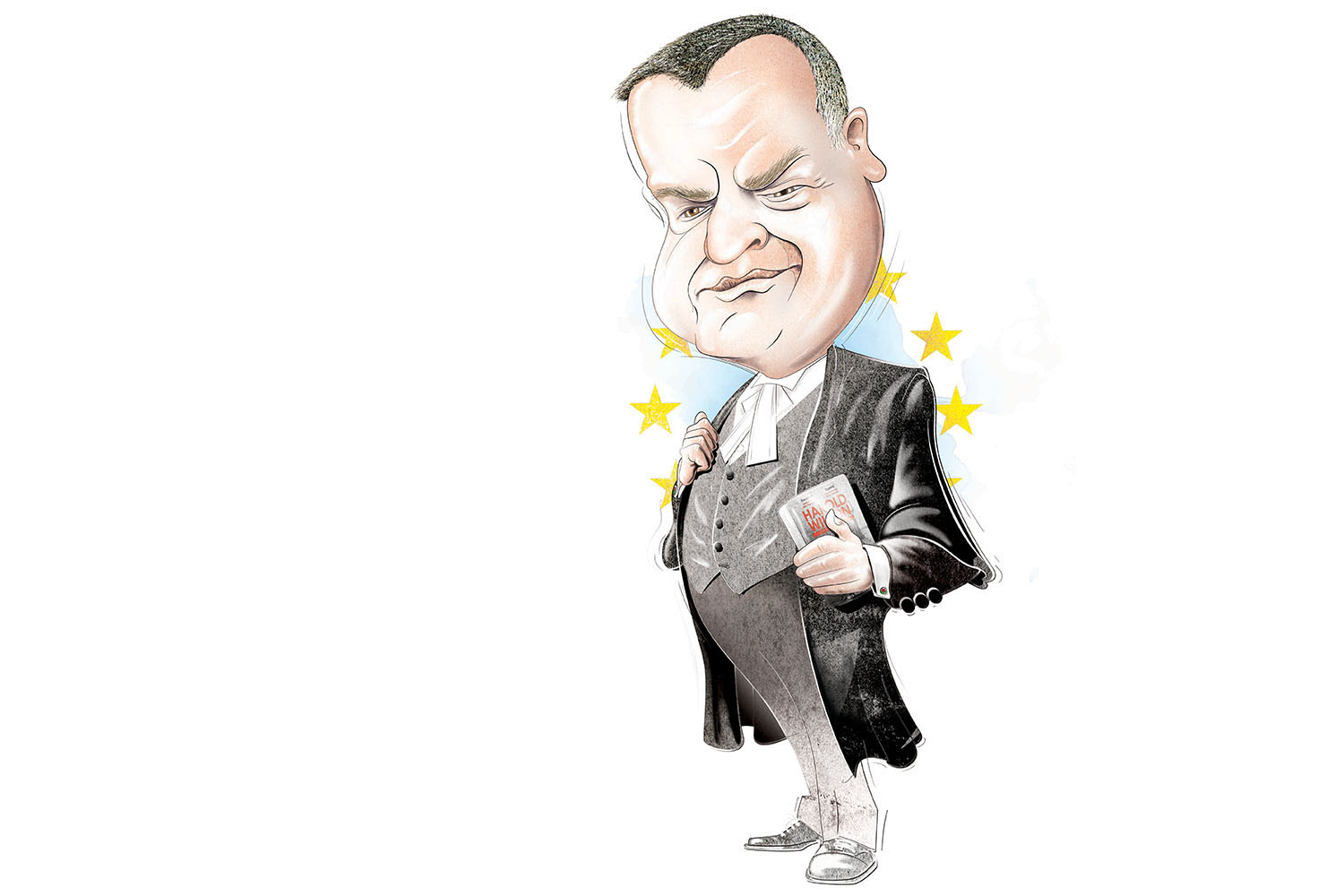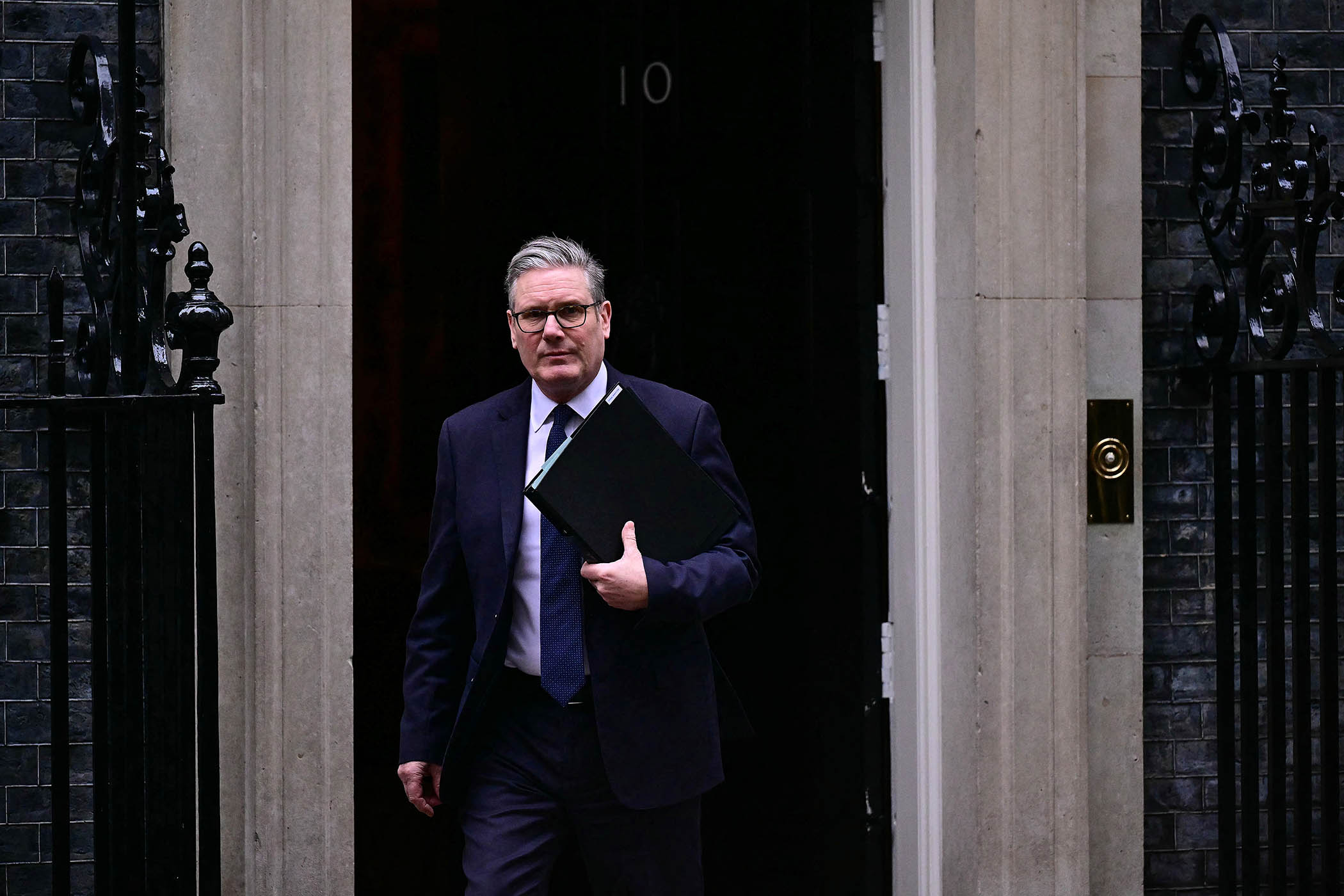Illustration by Andy Bunday
When Labour assumed power last summer, it took three days before Nick Thomas-Symonds received the call. It wasn’t the cabinet job he’d been hoping for, but rather paymaster general, an unwieldy role that can – and in this case certainly does – encompass an extraordinary range of duties, from compensation for the contaminated blood scandal to Lords reform to the highly sensitive negotiations with the EU.
It was a demotion for the MP for Torfaen, initially Keir Starmer’s shadow home secretary and a regular on the broadcast round, particularly at the height of the pandemic. “He was very upset that he didn’t get a full job in the Cabinet,” says one ally. “He’s very loyal to his friends – and Nick is one of Keir’s friends – but politics is a shitty game. He was kept waiting hours for the call after the Thursday election, and it didn’t come until the Monday.”
He may be lacking a cabinet seat but Thomas-Symonds quickly bagged an office on Downing Street, raising eyebrows at the time given his relatively junior role.
“The prime minister decided he wanted Nick to be close to him and report directly to him – he trusts his views and they’re very close friends,” says a Whitehall source. “That is why he sits in the C cabinet office, with a specific link to the PM.”
‘He’s too nice, so hasn’t scaled the heights his talent deserves. Needs sharper elbows’
‘He’s too nice, so hasn’t scaled the heights his talent deserves. Needs sharper elbows’
The pair forged their political careers together. They both entered parliament at the 2015 election – and so shared their 10-year anniversary last week – and stayed close throughout the Corbyn years before Thomas-Symonds backed Starmer for leader in 2020.
Thomas-Symonds’s job title may underplay the importance of the man to Starmer’s ambitions for the Labour government, which are coming into focus in the days before a crucial UK-EU summit. He has spent months in capitals across the continent speaking to his counterparts, most notably Maroš Šefčovič, the European commissioner for trade, who visited London in advance of the forthcoming summit.
Like the prime minister, Thomas-Symonds is a technocratic gradualist, which has frustrated some, both within Brussels and London. Those within the EU were disappointed when, after the election, it became apparent there was little substance beyond the “warm words” – oft repeated – about a desire for a reset.
Related articles:
Back in Westminster, people complain about a lack of vision and a lack of visibility for the man supposedly championing our country in Europe.
There was also annoyance about the delay in appointing a sherpa until six months into their time in power. When former Treasury mandarin Michael Ellam was finally announced earlier this year, it was seen as long overdue progress. There is also the all-too-familiar criticism that the Europe office is another Labour boys’ club. “The macho ‘no women to do Europe’ line remains,” grumbles one Europhile MP.
Newsletters
Choose the newsletters you want to receive
View more
For information about how The Observer protects your data, read our Privacy Policy
Yet from this lacklustre start, Ellam and Thomas-Symonds appear to be driving the UK towards a genuine turning point in the country’s relationship with the EU.
A historian by trade, Thomas-Symonds has three biographies of key Labour figures under his belt: party leaders Clement Attlee and Harold Wilson, as well his personal hero and NHS founder Nye Bevan. While he may not be the most partisan member of Starmer’s frontbench, he’s most definitely a Labour man.
Now the softly spoken Welshman is perhaps on course to enter the history books himself. Much is riding on the 19 May EU summit, with a defence agreement almost nailed down, while hopes are high of progress being made on youth mobility, fisheries and a food safety (SPS) deal.
Sources say Thomas-Symonds was crucial to the shifting sands on a youth mobility scheme, considered beyond the pale by the home secretary, Yvette Cooper, and Labour strategists concerned that Reform and the Conservatives would weaponise it as proof of the government’s dastardly (albeit fictitious) plan to overturn Brexit.
His father gave the boy a first name, Nicklaus – a nod to the golfing great Jack Nicklaus
His father gave the boy a first name, Nicklaus – a nod to the golfing great Jack Nicklaus
“He’s a calm figure, who would prefer to do things behind the scenes and have those conversations there,” says the Whitehall source. Another describes him as “sinuous”, having navigated the issue both through neat linguistic flexibility as well as quiet, polite persistence.
Thomas-Symonds’s background is crucial to understanding this perspective. He was born to steelworker Jeff and secretary Pam in a suburb of Pontypool in 1980. His father gave the boy a first name, Nicklaus – a nod to the golfing great Jack Nicklaus. His steady-Eddie nature is also apparent in his personal life; he met Rebecca, the woman who would become his wife, aged just 16.
Thomas-Symonds’s personality may have served him well so far – sources suggest he and Starmer have not just a similar world view but a similar approach to getting things done – but his amenable persona could be the thing that ultimately holds him back. “He’s a nice guy,” says a Tory peer. “Too nice for politics, so hasn’t scaled the heights his talent deserves. Needs sharper elbows.”
Several Labour figures warned that he was at risk of losing out to other, more politically savvy operators. “He’s being sidelined by [trade minister] Douglas Alexander,” says one senior MP. But others see his apolitical nature as a benefit in an environment where any “tall poppies” that might threaten the leadership are cut down to size. “Nick is kind of ‘in the room’ but unobtrusively in the room … He’s trusted by Keir partly because he hasn’t got leadership ambitions,” the ally notes. “He’s not a big beast but he is going to be somebody who you can rely upon to make incremental gains.”
All eyes might may be on the UK-EU side of his brief this month, but Thomas-Symonds’s wide-ranging brief puts relentless pressure on him. Alongside his work on Europe, he is the ministerial lead on the hereditary peers bill making its way through parliament, which will attempt to make good on Labour’s manifesto promise to reform the Lords.
Beyond the EU, perhaps the most contentious area of his work is the infected blood scandal, which also comes under his brief. Last week, officials were called to give evidence to a special session of the infected blood inquiry amid “grave concerns” about the speed of compensation payments, which are not due to conclude until 2029. Speaking under oath, Thomas-Symonds acknowledged it had been too slow, saying: “I’m never going to think this is satisfactory until everybody has received the compensation they are due.”
While many have branded the minister as apolitical, others point to the fact that he not only represents a leave-backing patch of south Wales – Torfaen voted 59.8% in favour of Brexit – but was born and brought up there as proof that he’s alive to the political realities of any apparent backsliding. This family background gave him an understanding that the need to offer communities hit by industrial decline a reason to stick with Labour is more than just a soundbite.



